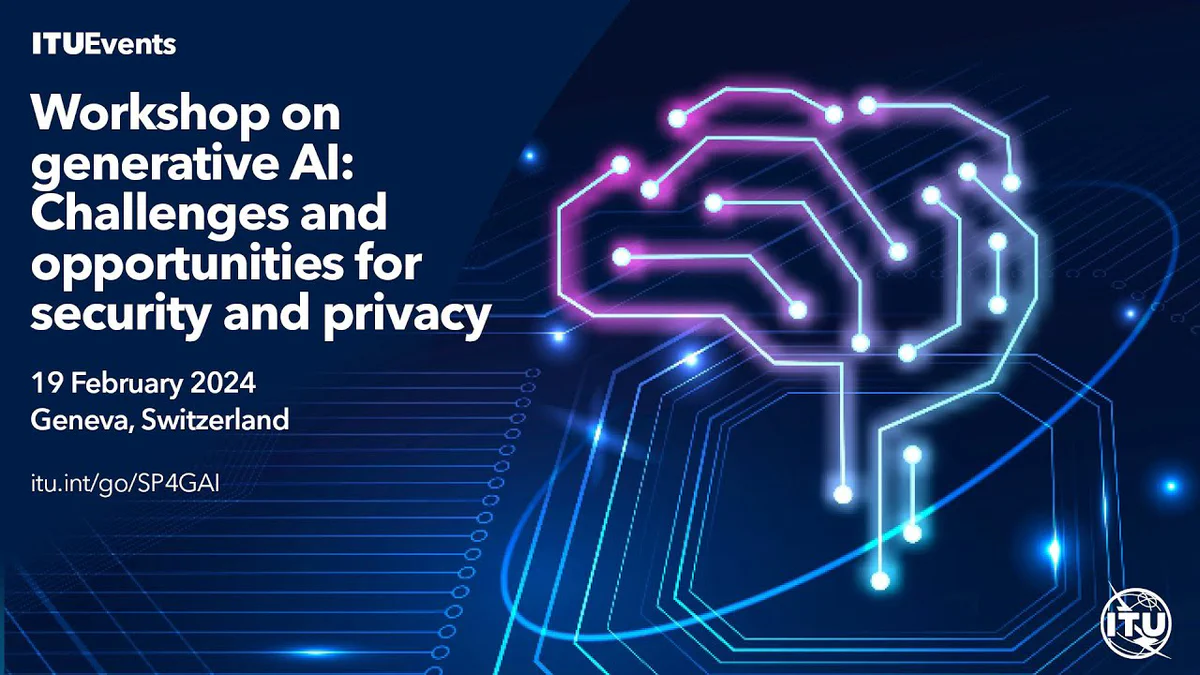AI-Powered Criminals A New Frontier in Cybersecurity

Table of Contents
In a presentation at the ITU-T workshop on securing AI, which primarily focused on protecting and securing AI-based systems and agents, Nicolas Thomas, our founder, took a different angle by shedding light on the alarming rise of AI-powered criminal activities and their implications for cybersecurity. Nicolas’s talk, titled “AI-Powered Criminals - A New Frontier in Cybersecurity,” offered critical insights into the evolving landscape of digital threats and the urgent need for innovative solutions.
You can watch the full presentation on the Inkan.link YouTube channel. The session provides detailed examples and demonstrations of how criminals are exploiting AI technologies, along with practical insights on protecting against these emerging threats.
The Rise of AI-Powered Fraud
Nicolas revealed that criminals are now leveraging large language models (LLMs) and generative AI to create highly convincing fraudulent content. He highlighted the existence of specialized tools like “fraud GPT” and “Only Fake,” which assist in forging identity documents that are nearly indistinguishable from genuine ones.
Accessibility and Cost
One of the most concerning aspects Nicolas emphasized was the low barrier to entry for criminals. For as little as €100 per month, low-skilled individuals can access AI tools capable of generating undetectable voice clones and other fraudulent materials.
Real-World Impact
Nicolas shared a shocking case study where criminals used AI to impersonate four individuals, including a CEO, in a video conference call. This sophisticated attack resulted in a fraudulent transfer of $25 million.
Limitations of Current Detection Methods
The presentation highlighted the inadequacy of current AI detection tools. Nicolas noted that even advanced detectors can produce false positives, sometimes flagging legitimate documents like the UN Constitution as AI-generated.
A Call for Innovative Solutions
To address these challenges, Nicolas proposed a shift in approach. Rather than focusing solely on detecting AI-generated content, he suggested developing systems that allow individuals to proactively prove their digital legitimacy. It is also a call to partner and better exchanges pre-verified information between organizations to improve trust and security.
Protecting Personal Identity
Nicolas concluded by emphasizing the critical need to protect personal identity information. He urged organizations and policymakers to prioritize the secure handling of sensitive data to prevent its misuse in AI-powered fraud schemes.
This presentation serves as a wake-up call for business leaders, IT professionals, and cybersecurity experts. As AI-powered criminal activities become more sophisticated and accessible, it’s crucial to stay informed and develop new strategies to protect digital identities and maintain trust in our increasingly AI-driven world.
For more information on innovative solutions to combat AI-powered fraud and protect digital identities, visit inkan.link.
Discover Sealfie to protect your business
Eliminate the stress of fake CEO attacks with our revolutionary solution.
Discover SealfieRelated posts

My Boss is an AI (Part 2)
Cybercriminals gain access to CEOs' emails and use AI to mimic their writing style for free. Standard security recommendations advise caution and looking for anomalies, such as spelling mistakes or language errors. It's easy to see why these recommendations are no longer sufficient. Criminals can create convincing forgeries, even with dedicated AI like fakeGPT. Sealfie supports the most targeted individuals by providing peace of mind during crucial financial transactions.

My boss is an AI
The business email compromise (BEC) fraud is indeed associated with emails, serving as the preferred entry point for attackers who then move on to other channels, notably voice. The democratization of generative AI allows a criminal to obtain real-time voice cloning software for less than 100 euros. Protection based on human detection of a fake voice is destined to fail. Nevertheless, these are the classic recommendations for safeguarding against this fraud. We offer an innovative approach with Sealfie that requires no training.